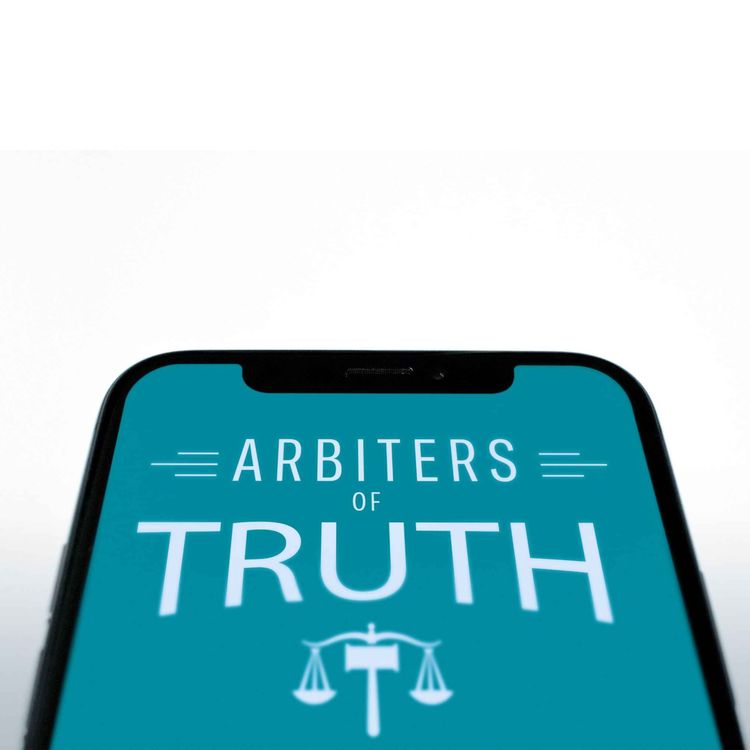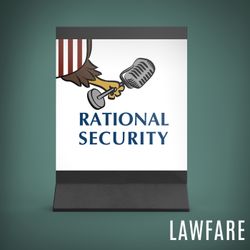Share

The Lawfare Podcast
The Platforms versus Texas in the Supreme Court
On May 12, the U.S. Court of Appeals for the Fifth Circuit allowed an aggressive new Texas law regulating social media to go into effect. The law, known as HB20, seeks to restrict large social media platforms from taking down content on the basis of viewpoint—effectively restricting companies from engaging in a great deal of the content moderation that they currently perform. It also imposes a range of transparency and due process requirements on platforms with respect to their content moderation. A group of technology companies challenging the law have filed an emergency application to the Supreme Court seeking to put HB20 back on hold while they continue to litigate the law’s constitutionality under the First Amendment.
This week on Arbiters of Truth, our series on the online information ecosystem, Evelyn Douek and Quinta Jurecic spoke with Alex Abdo, litigation director at the Knight First Amendment Institute, and Scott Wilkens, senior staff attorney at Knight. The Institute, where Evelyn is a senior research fellow, filed an amicus brief in the Fifth Circuit, taking a middle ground between Texas—which argues that the First Amendment poses no bar to HB20—and the plaintiffs—who argue that the First Amendment prohibits this regulation and many other types of social media regulation besides. So what does the Texas law actually do? Where does the litigation stand—and what will the impact of the Fifth Circuit’s ruling be? And how does the Knight First Amendment Institute interpret, well, the First Amendment?
More episodes
View all episodes

Lawfare Archive: The Legislative Dog That Hasn’t Barked
48:01|From April 11, 2022: The period after Watergate and President Nixon's resignation saw an unprecedented barrage of congressional efforts at reforming the executive branch. The period after Donald Trump's departure from office has seen no comparable spree of legislative action—at least not yet. In a recent Lawfare article, Quinta Jurecic and Andrew Kent explored the disparity and the reasons for it, and they analyzed whether any of the legislative reforms that have been so far proposed have any prospect of passage. They joined Benjamin Wittes to talk about why things are so different today than they were in the late 1970s, what happened in that period and whether Congress will actually be able to do anything now.To receive ad-free podcasts, become a Lawfare Material Supporter at www.patreon.com/lawfare. You can also support Lawfare by making a one-time donation at https://givebutter.com/lawfare-institute.
Lawfare Archive: The Spymasters with Chris Whipple
52:02|From September 16, 2020: What is the proper relationship between the CIA director and the president? How should directors handle arguably illegal orders? How important is the director's role as the nation's honest broker of information during times of crisis?To get at these questions, David Priess sat down with Chris Whipple, a documentary filmmaker, journalist and the author of two books about the people around the president. "The Gatekeepers," based upon his documentary of the same name, examines White House chiefs of staff, and his new book, "The Spymasters: How the CIA Directors Shape History and the Future," is based on the Showtime documentary "The Spymasters: CIA in the Crosshairs," for which Whipple was the writer and executive producer. They talked about CIA directors through the last several decades and how they've impacted U.S. history and national security.To receive ad-free podcasts, become a Lawfare Material Supporter at www.patreon.com/lawfare. You can also support Lawfare by making a one-time donation at https://givebutter.com/lawfare-institute.
Lawfare Daily: Cybersecurity Challenges and Opportunities
32:03|For today's episode, Lawfare Foreign Policy Editor Daniel Byman interviewed Michael Sulmeyer, who was the top Defense official for all aspects of cyber policy in the Biden administration. Sulmeyer discusses the cyber threat landscape, different roles and missions, how Artificial Intelligence might be leveraged, and the key role of allies in cyberdefense, among other issues.To receive ad-free podcasts, become a Lawfare Material Supporter at www.patreon.com/lawfare. You can also support Lawfare by making a one-time donation at https://givebutter.com/lawfare-institute.
Lawfare Daily: Ideological Exclusions and Deportations with Julia Rose Kraut
52:40|On today’s episode, Julia Rose Kraut, author of the book “Threat of Dissent: A History of Ideological Exclusion and Deportation in the United States,” joins Lawfare Managing Editor Tyler McBrien to talk about that book, originally published in 2020, and how it can help us make sense of the Trump administration’s recent immigration and deportation policies. They discussed how ideological exclusions and deportations present a unique intersection of immigration and First Amendment legal doctrine and precedent, the chilling effect these policies have on constitutionally protected political speech, and the recent case of Columbia University graduate student Mahmoud Khalil.To receive ad-free podcasts, become a Lawfare Material Supporter at www.patreon.com/lawfare. You can also support Lawfare by making a one-time donation at https://givebutter.com/lawfare-institute.
Rational Security: “The More You DOGE” Edition
01:22:19|This week, Scott sat down with his Lawfare colleagues Anna Bower, Tyler McBrien, and Kevin Frazier to talk through the week’s big national security news, including:“Aliens vs. Predators.” Despite forceful legal pushback—including by the U.S. Supreme Court—the Trump administration is working hard to continue its campaign to remove foreign aliens it accuses of pursuing a “predatory incursion” from the country using the Alien Enemies Act. How far will it go? And to what extent can the courts (or anyone else) stop them?“Aye Aye Robot.” Both the Biden and Trump administrations were fans of artificial intelligence (AI) and set out policies to incorporate it into government decision-making. But while the Biden administration focused much of its efforts on guardrails, the Trump administration has increasingly torn them down as part of a broader push to incorporate the nascent technology into government decision-making. What are the risks and potential benefits of this sort of government by AI? “For Pete’s Sake.” Beleaguered Secretary of Defense Pete Hegseth is more beleaguered than ever this week, after reports that, in addition to inadvertently sharing classified secrets with Atlantic reporter Jeffrey Goldberg, he also passed them to his wife, brother, and personal lawyer on another Signal thread. Meanwhile, a former adviser (and established Trump loyalist) went public with allegations that Hegseth’s management has led to chaos at the Defense Department and called for his resignation. Will this be enough for the Trump administration to cut bait and run? Or does his support in the MAGAsphere simply run too deep?In object lessons, Tyler, fresh from biking adventures abroad, hyped the routes, photos, and resources on bikepacking.com, if physical exertion is your idea of relaxation. Anna, finding other ways to relax, came to the defense of The Big Short in helping to soothe her anxiety amid more current market upheaval. Doubling down on the “no relaxation without tension” theme, Scott’s outie binge-watched Severance while on vacation. And Kevin, very on-brand, was quick to bring us a feel-good story of a new community partnership to support AI skill-building in Austin-based nonprofits. To receive ad-free podcasts, become a Lawfare Material Supporter at www.patreon.com/lawfare. You can also support Lawfare by making a one-time donation at https://givebutter.com/lawfare-institute.
Lawfare Daily: Mikhail Zygar on Putin, the Russia-Ukraine War, and Press Freedom
50:18|On today's episode, Mikhail Zygar, a renowned Russian journalist living in exile in the U.S., the author of multiple books on Vladimir Putin, and the author of The Last Pioneer substack, joined Lawfare Associate Editor Olivia Manes to discuss his experience as the founder of one of the last independent Russian media channels, TV Rain. They talked about the incentives underlying Putin's actions in Ukraine, how the Russian president has clamped down on independent journalism, global disillusionment with liberal democracy, and more.To receive ad-free podcasts, become a Lawfare Material Supporter at www.patreon.com/lawfare. You can also support Lawfare by making a one-time donation at https://givebutter.com/lawfare-institute.
Lawfare Daily: Chris Hughes on His New Book, ‘Marketcrafters’
41:44|Chris Hughes, author of “Marketcrafters” and co-founder of the Economic Security Project, joins Kevin Frazier, AI Innovation and Law Fellow at Texas Law and Contributing Editor at Lawfare, to discuss his book and its implications at a time of immense economic uncertainty and political upheaval. The duo explore several important historical case studies that Chris suggests may have lessons worth heeding in the ongoing struggle to direct markets toward the public good.To receive ad-free podcasts, become a Lawfare Material Supporter at www.patreon.com/lawfare. You can also support Lawfare by making a one-time donation at https://givebutter.com/lawfare-institute.
Lawfare Daily: The Trials of the Trump Administration, April 18
01:34:29|On April 18 at 4 pm ET, Lawfare Editor-in-Chief Benjamin Wittes sits down with Lawfare Senior Editors Anna Bower, Quinta Jurecic, and Roger Parloff and Lawfare Legal Fellow James Pearce to discuss the status of the civil litigation against President Trump’s executive actions, including Judge Boasberg's finding of probable cause for contempt in the Alien Enemies Act case.
Lawfare Archive: 'The President Who Would Not Be King'
55:06|From January 26, 2021: Jack Goldsmith sat down with Michael McConnell, the Richard and Frances Mallery Professor and director of the Constitutional Law Center at Stanford Law School, a senior fellow at the Hoover Institution and the author of the new book, "The President Who Would Not Be King: Executive Power Under the Constitution." They discussed McConnell's textual historical approach to interpreting presidential power under Article II of the U.S. Constitution, the many novel elements of executive power embodied in Article II and the proper understanding of Article II's Vesting Clause. They also talked about contemporary implications of Michael's reading of Article II for war powers, the unitary executive and late impeachments.To receive ad-free podcasts, become a Lawfare Material Supporter at www.patreon.com/lawfare. You can also support Lawfare by making a one-time donation at https://givebutter.com/lawfare-institute.